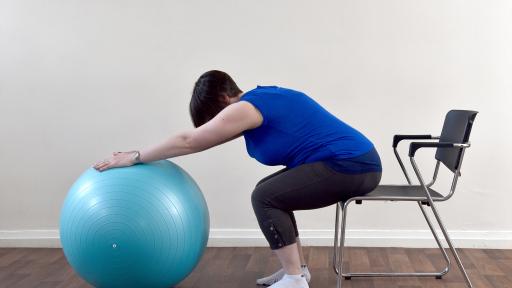Multiple sclerosis can affect your balance in a number of ways. MS damage to your nerves can affect you directly, but some other MS symptoms can affect your balance indirectly. Either way, balance problems can lead to increased risk of falling and injury.
Some MS symptoms that can worsen your balance include muscle stiffness (spasticity and spasms), muscle weakness, numbness or altered sensations in parts of your body, tremor, pain, visual problems and fatigue.
Not all balance problems are MS related.
Balance problems can be caused by interruptions to the communication between the brain and the rest of the body. If your brain says move but the message doesn't reach your leg, this can result in a fall.
Sensory problems may affect the way in which you walk and thus affect their balance. For example, if your feet are numb, you might not be able to tell if they are touching the ground evenly, or if your feet are over-sensitive, you might be more tentative in the way you walk. Becoming fatigued can mean that your balance worsens as your muscles get tired or you get too mentally tired to stabilise yourself effectively.
MS can also cause dizziness and vertigo which can make it difficult to remain upright, unsupported, even when you are standing still.
No matter what the cause of your balance problems, you can work with health professionals such as physiotherapists to find ways to manage your symptoms.
Around one in five people have reported balance problems as one of their first symptoms of MS. Studies have found that seven out of ten people experience balance problems at some time during the course of their condition.
There are a number of factors which can affect balance, so it is important that balance problems are investigated thoroughly by a physiotherapist or other health professional. However, the success of any intervention to improve your balance will depend on you doing the recommended activities at home as well.
If you find that your balance worsens with fatigue, then you might find it useful to plan to have walking or balance aids with you. Using walking aids can also help reduce fatigue.
Moderate exercise, such as yoga or Pilates, has been shown to reduce fatigue and can also improve your balance symptoms. To be really effective, this may mean attending exercises regularly over a long period of time. Once you stop exercising, you are likely to find that you lose the benefit quickly.
You may be referred to a physiotherapist or neurophysiotherapist. They might offer to enroll you in an exercise class that they lead, or teach you some exercises to do at home. Some researchers are investigating the use of step training and sensory stimulation programmes, and these may be available in your area.
If you have dizziness or vertigo, then you might be offered medication or vestibular rehabilitation to improve your symptoms. Dizziness is sometimes caused by problems with the way your brain interprets signals from your inner ears, eyes and body. Vestibular rehabilitation involves specialist exercises to retrain your brain to interpret all the signals harmoniously.
Balance problems can also be managed to some extent by being aware of the factors that make your balance worse. An occupational therapist could assess you and your home and suggest ways to help you cope with unsteadiness and avoid falls.



